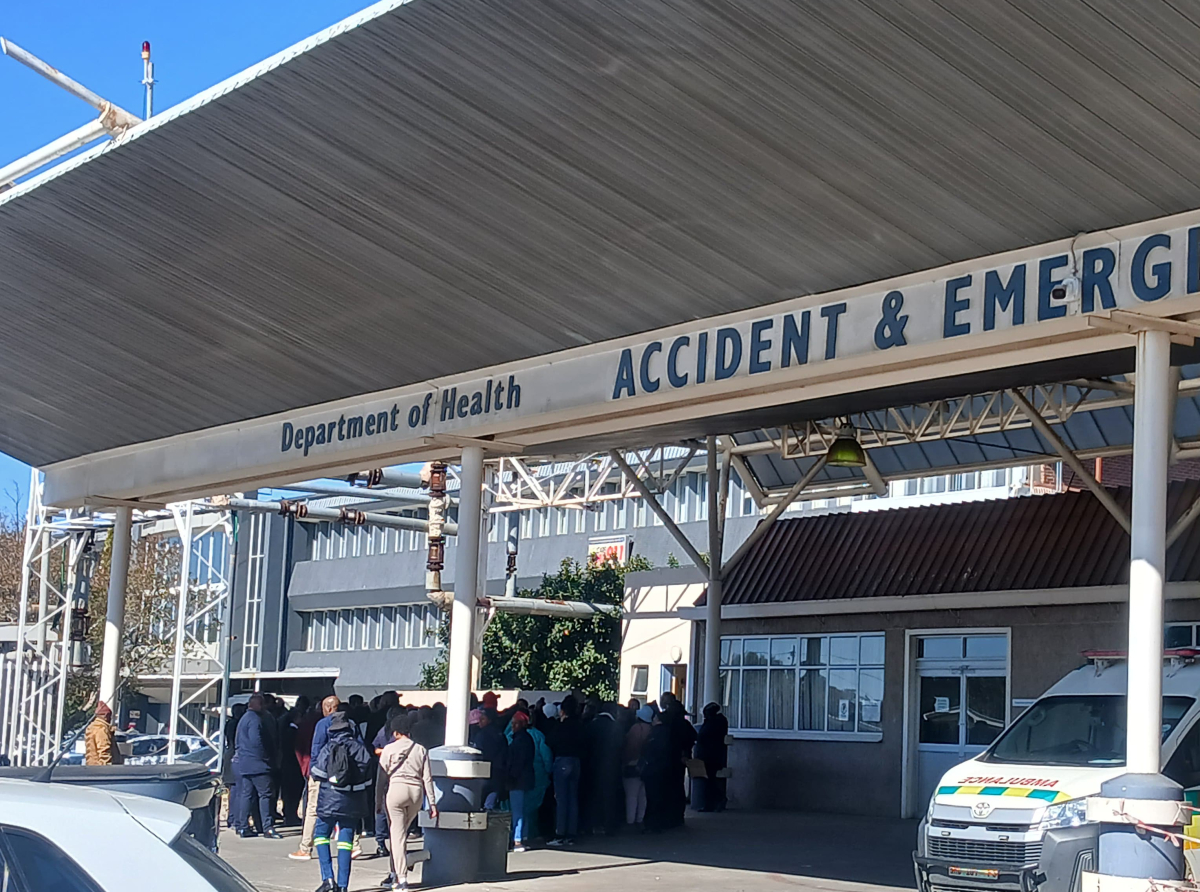
By: Abigail Visagie
• Overcrowding and staff shortage, a major challenge
• Nehawu threatens a full-blown workers' strike
• Premier warns of the danger of neglecting patient
A persisting severe shortage of staff has hit the functioning of the Pelonomi Tertiary Hospital in Bloemfontein, prompting the staff to launch a protest demanding urgent intervention by the provincial health department. During the recent demonstration outside the hospital by staff members, a number of patients were turned away, while others were left unattended. The demonstration, which subsequently prompted an urgent visit by Premier Maqueen Letsoha-Mathae and MEC for Health Monyatso Mahlatsi to the hospital, happened a week ago. Speaking to the Journal News, one of the frustrated staff members, who wished to remain anonymous in fear of victimisation, revealed that workers are grappling to deal with the heavy inflows of patients due to staff crunch. “The situation has deteriorated since the closure of the casualty ward at the National District Hospital last year. We have been receiving an increasing number of patients, trying to assist them, but that has also taken a serious toll on us to the point where we are labeled as lazy workers by the management. We cannot work like this anymore, and we demand that the National District Hospital be opened again urgently,” said the staff member. The National District Hospital was closed in June last year after a fire broke out in one of the wards. No injuries or fatalities were reported as a result of the fire. This was echoed by the National Education, Health and Allied Workers Union (Nehawu)’s Provincial Secretary Khauhelo Mnqibisa, who said their demonstration is emphasized by non-operational wards and urged the department to address the hazardous working conditions or face a workers' strike. “We have met with the MEC, and a team was established to monitor progress made in terms of decisions taken in the meeting. The demonstration also emphasized that there is a continuous experience of critical influx of patients while operating with severe staff shortages in a form of both clinical and non-clinical staff. This pressure has been exacerbated by the closure of some wards at the National Hospital, which has remained non-operational since the fire incident last year. As a result, Pelonomi is bearing the burden of an overstretched system, leaving its limited staff overwhelmed and struggling to meet the demands of patient care,” said Mnqibisa. However, the dire situation at the Pelonomi Hospital was confirmed by the Head of the Department (HOD), Masechaba Sesing, during her reply at the Portfolio Committee on Public Accounts and Finance (PROPAC) meeting in March this year. She told the committee that the increased patient load is affecting both healthcare workers and the patients themselves. “The closure of National is providing immense pressure on Pelonomi because most of those patients now go to Pelonomi. It affects them badly because they move from the neighborhood that they are close to. It also affects the workers who now have to move from the area that they have applied to and go to another area,” said Sesing. She added that the department has allocated over R500 million to construction projects and servicing facilities across the province, which included an extension to Pelonomi’s maternity ward and the long-awaited reopening of the government mortuary. However, a significant portion of the allocated funds is being diverted toward day-to-day operations, given the shortage of skilled artisans in the sector. Mathae - following her emergency meeting with Mahlatsi and the hospital’s executive management held on Friday - warned that no patient should ever be turned away or left unattended at a healthcare facility. She said that while she acknowledges the challenges brought forward by the severe shortage of space and medical personnel at Pelonomi Hospital, her administration will work relentlessly with all stakeholders to find sustainable solutions that protect the most vulnerable. “We acknowledge that our hospitals operate under strict regulations and norms. But when lives are at stake, leadership demands bold and compassionate action. These patients are not just statistics. They are mothers, fathers, sons and daughters, and they deserve care,” she said.

